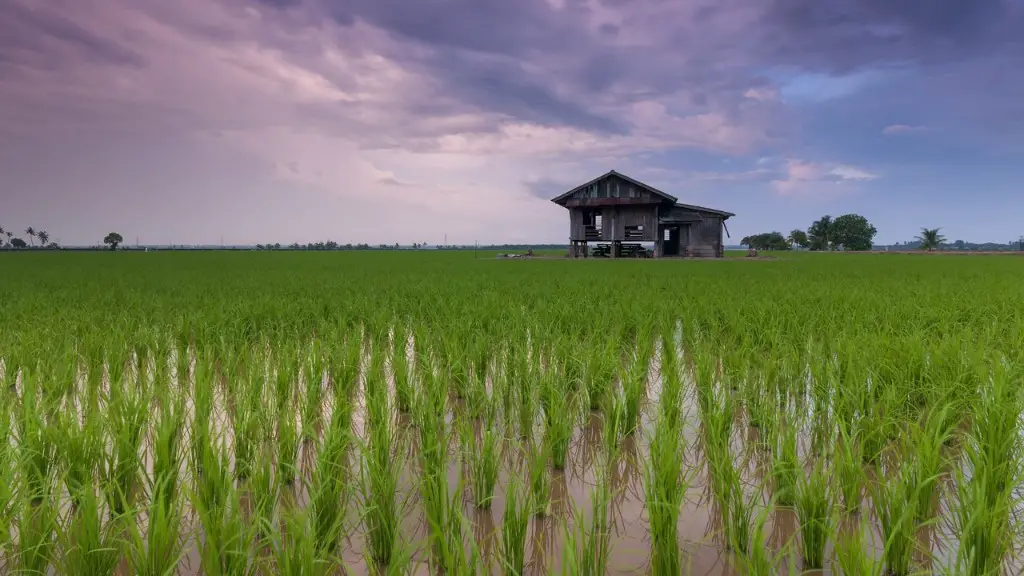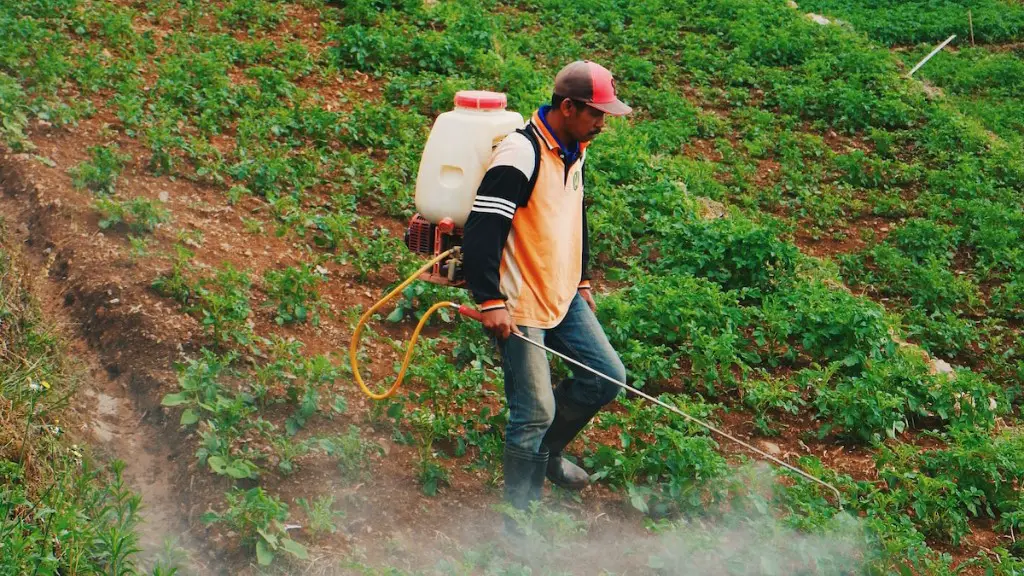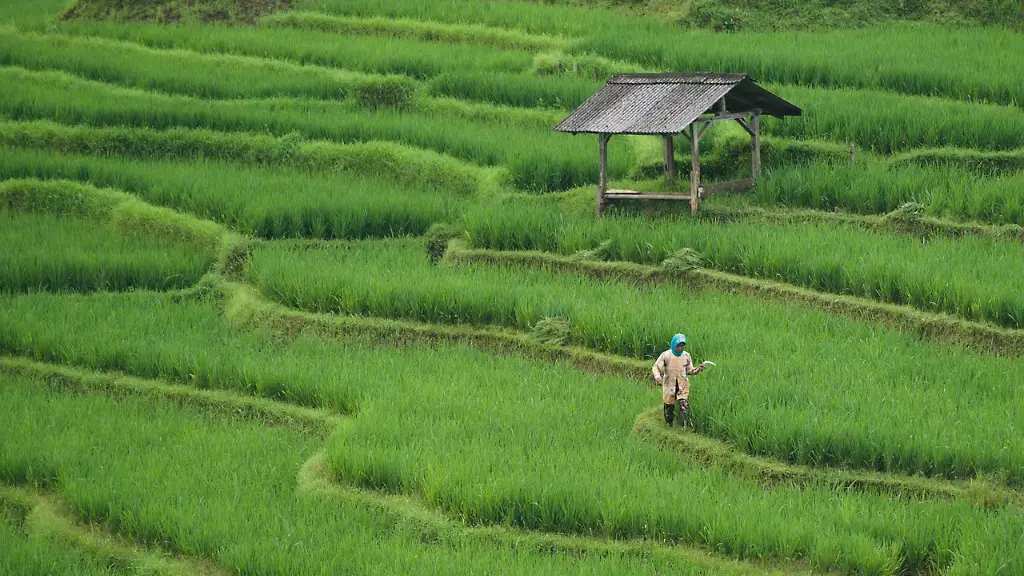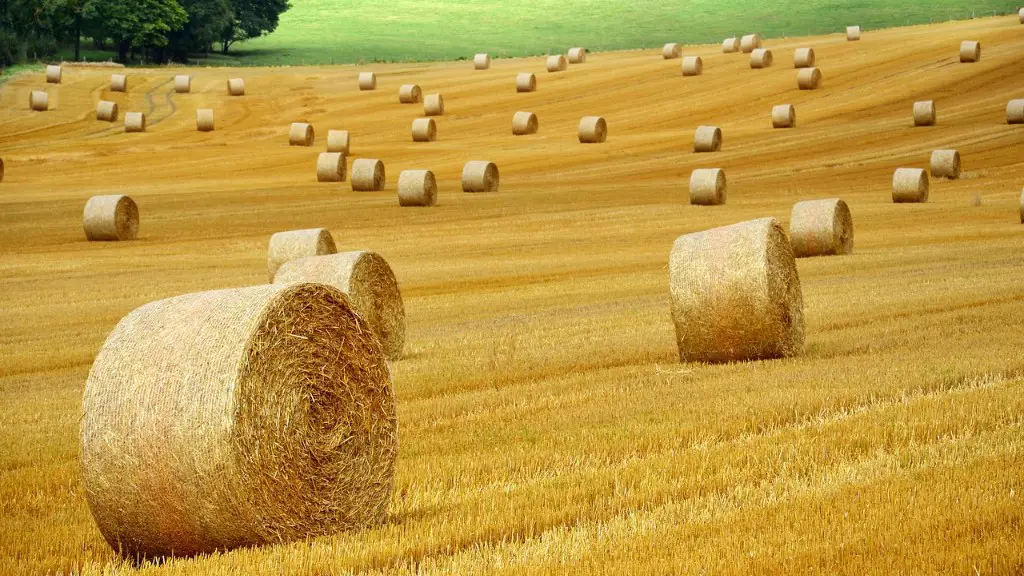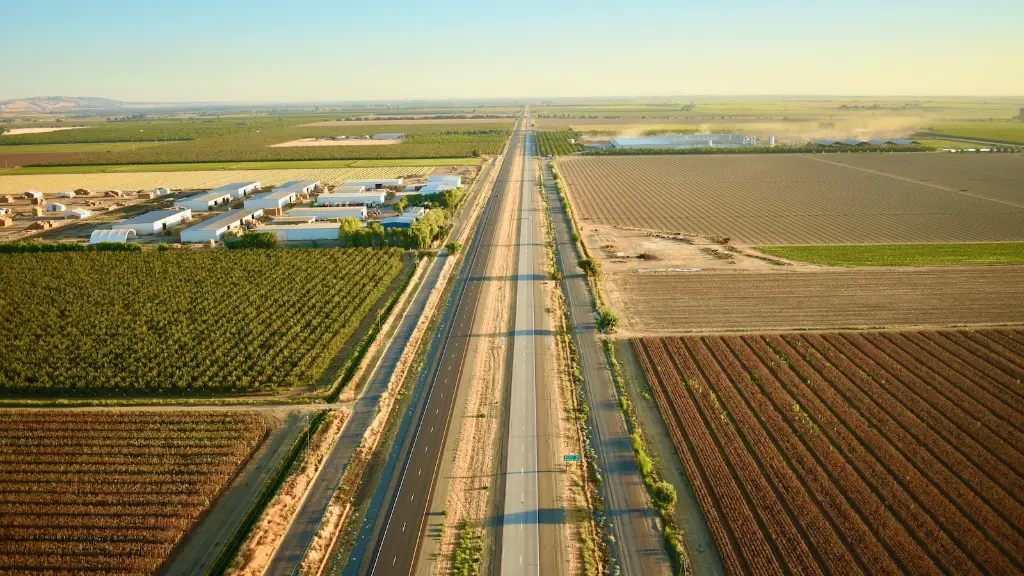Agriculture has been a major source of food for humans since the early days of civilization. It allowed for the domestication of plants and animals, which led to the development of cities and civilizations. Agriculture allowed for the growth of crops and the domestication of animals, which led to the development of civilizations. Agriculture has also been a major source of employment for humans throughout history.
The agricultural revolution changed the way early humans lived. Instead of moving around to find food, they began to stay in one place and farm. This allowed them to build permanent homes and settle into communities. Agriculture also allowed for the domestication of plants and animals, which led to the development of civilizations.
How did the agricultural revolution change the lives of early humans?
The agricultural revolution had a huge impact on human society. It led to a decline in nutrition as people became more dependent on the land, and it also caused a rise in infectious diseases contracted from domesticated animals. This revolution also led to societal inequality, as some people became more dependent on the land than others.
Agriculture is one of the most important inventions of humanity. It allowed for the growth of food in one place, with a much smaller group of people. This led to massive population growth, creating cities and trade. Agriculture has had a profound impact on human civilization.
What was the impact of agriculture on humans
Farmers have an increased prevalence of many acute and chronic health conditions including cardiovascular and respiratory disease, arthritis, skin cancer, hearing loss, and amputations. Other health outcomes have been little studied in the agricultural workplace, such as stress and adverse reproductive outcomes.
There are a number of potential explanations for the increased prevalence of health problems among farmers. First, farming is a physically demanding job that often involves exposure to hazardous materials and conditions. Second, farmers tend to be isolated from the general population and often lack access to adequate healthcare. Finally, the economic insecurity of farming can lead to stress and anxiety, which can further contribute to health problems.
If you are a farmer, it is important to be aware of the potential health risks associated with your job. Be sure to take steps to protect yourself from exposure to hazardous materials and conditions, and to stay up-to-date on your vaccinations. If you are experiencing any health problems, be sure to see a doctor as soon as possible.
Agriculture impacts society in many ways, including: supporting livelihoods through food, habitat, and jobs; providing raw materials for food and other products; and building strong economies through trade.
Agriculture is the backbone of many economies, providing jobs and income for millions of people around the world. It also provides food and other products for people to consume, and raw materials for industry.
Agriculture can have positive or negative impacts on the environment. For example, agriculture can lead to deforestation and loss of biodiversity, as well as water and soil pollution. On the other hand, well-managed agriculture can help to conserve and even improve the environment.
Trade is an important part of the agriculture sector, with agricultural products being traded all over the world. This trade can provide income for farmers and other people involved in the agriculture sector, as well as benefiting consumers by providing them with a greater variety of food and other products.
What are 3 reasons why agriculture is important?
Agriculture is one of the most important aspects of human civilization. It is the main source of raw materials and food for many people around the world. It also plays a big role in international trade and a country’s development. Here are 10 reasons why agriculture is important:
#1 It’s the main source of raw materials: Agriculture is the main source of raw materials for many industries. It provides the food, fiber, and fuel that we need to survive and thrive.
#2 It’s important to international trade: Agriculture is a vital part of the global economy. It is the main source of food for many countries and is also a major export.
#3 It plays a big role in a nation’s revenue: Agriculture is a major contributor to a country’s GDP. In fact, it is the largest sector in many developing countries.
#4 It provides employment: Agriculture is a major source of employment. In fact, it is the largest employer in the world.
#5 It’s crucial to a country’s development: Agriculture is essential for a country’s development. It provides the food and raw materials that are necessary for industrialization and economic growth.
#6 It can help heal the environment: Agriculture
Agriculture plays a critical role in the entire life of a given economy. It is the backbone of the economic system of a given country. In addition to providing food and raw material, agriculture also provides employment opportunities to a very large percentage of the population.
What are the changes caused by agriculture?
Agriculture contributes to a large number of environmental problems that cause environmental degradation, including climate change, deforestation, biodiversity loss, dead zones, genetic engineering, irrigation problems, pollutants, soil degradation, and waste. These problems are caused by a variety of factors, including the way we grow and manage our crops, the use of chemicals and other pollutants, and the way we irrigation and store water. We need to find ways to mitigate these problems in order to protect our environment and ensure sustainable agriculture practices.
The Agricultural Revolution was a time of great experimentation with new crops and new methods of crop rotation. These new farming techniques gave soil time to replenish nutrients leading to stronger crops and better agricultural output. Advancements in irrigation and drainage further increased productivity.
What are the five benefits of agriculture
Did you know that farming is good for your health? Being a farmer is challenging and stimulating work, and it provides a source of income in rural areas. Farm work also helps develop younger generations. Plus, farming can help the environment thrive.
Agriculture has been a key part of human civilization for centuries, providing food and other products for people to live. In recent years, however, with the rise of industrialization and other changes in society, the role of agriculture has changed somewhat. Agriculture still plays a vital role in many people’s lives, but it has become less important in some ways as other industries have grown.
What is the most important thing for agriculture?
The use of modern machinery in agricultural lands has increased crop production and quality, leading to an increase in the provision of raw materials to industries. This has had a positive impact on the economy, as industries are able to produce more goods and create more jobs.
The Grain Reaper was invented by Cyrus McCormick in 1831. The Grain Combine was patented in 1836. John Deere began manufacturing plows in 1837.
How did life after agriculture change
When early humans began farming, they were able to produce enough food that they no longer had to migrate to their food source. This meant they could build permanent structures, and develop villages, towns, and eventually even cities. Closely connected to the rise of settled societies was an increase in population.
More abundant food supplies could support denser populations, and farming tied people to their land Small settlements grew into towns, and towns grew into cities Agriculture produced enough food that people became free to pursue interests other than worrying about what they were going to eat that day.
Farming allowed for the growth of cities and the rise of civilizations. Agriculture allowed for the domestication of plants and animals, which led to the development of civilizations. Agriculture allowed people to settle down and create cities. Agriculture allowed for the growth of food surpluses, which allowed for the development of trade and commerce. Agriculture allowed for the growth of civilizations.
What were the two major changes in agriculture during those times?
The two big changes in agriculture around this time were due to the increased usage of iron ploughshares and the adoption of paddy farming. Iron ploughshares were able to turn over heavy, clayey soil better than wooden ploughshares, resulting in higher grain yields. Paddy farming was another innovation that led to increased food production. Paddy is a type of rice that is grown in flooded fields, and this method of cultivation was much more productive than dryland farming.
The Agricultural Revolution of the 18th century led to advances in food production that resulted in better diets, longer life spans, and an increase in population. As population increased, so did the pool for workers in industry. The Agricultural Revolution had a profound impact on the industrialization of Europe and the world.
Conclusion
Hunter-gatherer societies were replaced by ones based on agriculture, which allowed for a more settled lifestyle. Agriculture allowed for the domestication of plants and animals, which led to the development of civilizations. Agriculture changes the life of early humans by providing a more reliable food source, which leads to a more settled lifestyle.
Agriculture allowed early humans to settle down in one place, which led to the development of civilizations. Agriculture also allowed for the domestication of plants and animals, which led to the development of new technologies and the exchange of goods and ideas.
